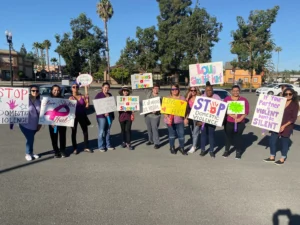About 60% of men and 50% of women in America will experience trauma at least once in their lives, with 12 million US adults suffering from PTSD during any given year. Given its prevalence, it’s important to understand what trauma is, what effects it has, and—crucially—where help can be found.
Trauma Definition
The American Psychological Association (APA) defines trauma as “an emotional response to a terrible event like an accident, rape, or natural disaster.” Short-term responses are typically shock and denial, while long-term responses can include “unpredictable emotions, flashbacks, strained relationships, and even physical symptoms like headaches or nausea.” These are normal responses to abnormal experiences.
Trauma is a very complicated kind of harm that can result from a wide variety of events or circumstances and is frequently a result of domestic violence. Although individuals can experience trauma in unique ways, there are nonetheless common threads that allow for some categorization. Psychologists have identified three main types of trauma: acute, chronic, and complex.
-
Acute trauma results from a single incident.
-
Chronic trauma is repeated and prolonged, such as domestic violence or abuse.
-
Complex trauma is exposure to varied and multiple traumatic events, often of an invasive, interpersonal nature.
Effects of Trauma
When a person is traumatized, alarm and alert systems are activated in the brain, memory systems are overwhelmed with intense stimulation, and the body’s ability to return the mind to its restful state is impacted. The effects of trauma can be varied and cascading, and may include symptoms like the following:
-
Concentration problems
-
Memory problems
-
Psychological distress
-
Physiological distress
-
Relationship problems
-
Social withdrawal
-
Fear
-
Sadness
-
Feeling nervous, jumpy, or on high alert
-
Irritability or anger
-
Difficulty sleeping
-
Intrusive thoughts, flashbacks, or nightmares
-
Trouble feeling positive emotions
Usually, these symptoms improve over time, although some people may experience lingering, intense effects that interfere with their day-to-day lives and do not go away on their own. People experiencing trauma from domestic violence are often at risk for post-traumatic stress disorder (PTSD). Psychologists have developed a conceptual equation for understanding the relative risk of trauma response:
Relative Risk of Trauma Response = (The Traumatic Event(s) + Vulnerability of the Person) – (Protective Factors + Resiliency Gained)
Factors influencing the strength of the traumatic event include the frequency, duration, and intensity of the attack(s), as well as the presence of injury and the identity of the perpetrator. Factors influencing vulnerability include age, prior trauma, and compounding issues such as homelessness or substance abuse.
Coping With Traumatic Stress
Thankfully, there are many coping strategies and forms of care that can help people manage their trauma. The APA recommends these research-based strategies for coping with traumatic stress:
-
Lean on your loved ones. If you feel ready to discuss the traumatic event, you might talk to them about your experience and your feelings. You can also ask loved ones to help you with household tasks or other obligations to relieve some of your daily stress.
-
Face your feelings. Though avoidance is normal, too much of it can prolong your stress and keep you from healing. Gradually, try to ease back into a normal routine. Support from loved ones or a mental health professional can help a lot as you get back in the groove.
-
Prioritize self-care. Do your best to eat nutritious meals, get regular physical activity, and get a good night’s sleep. And seek out other healthy coping strategies such as art, music, meditation, relaxation, and spending time in nature.
-
Be patient. Remember that it’s normal to have a strong reaction to a distressing event. Take things one day at a time as you recover.
Additionally, as demonstrated in the above equation for relative risk of trauma response, the risk of trauma response has these mitigating factors: Protective Factors and Resiliency Gained. Protective factors include support from family, friends, and community, which in turn promote greater resiliency. Resiliency is also bolstered by things like psychological rehearsal, building up one’s abilities to face predictable challenges, perspectives on stress, and ability to balance deficits with strengths.
While these strategies can help combat symptoms of trauma, professional resources are also effective and valuable. Places offering trauma-informed care have staff that follow principles such as…
-
understanding how trauma can affect people, including how mental health problems can be reactions to trauma
-
asking sensitively about past trauma, and offering appropriate support if you disclose it
-
being aware of the potential for mental health services to cause harm if delivered without trauma awareness
-
understanding your strengths and recognising what has helped you survive and cope
-
being trustworthy, transparent and involving you in your care
You can receive trauma-informed care by seeking therapy for trauma, or by utilizing crisis services. Trauma-informed care is especially crucial for victims of domestic violence, as a means of care that promotes feelings of safety and security.
At Crisis House, we’re leaders in critical services in East County, San Diego, administering programs for individuals and families experiencing domestic violence and homelessness. See our impact and help us reach those in need by donating or volunteering today! You can also sign up for our newsletter to stay in the loop as we work to connect families, children, and individuals to crucial resources. Together, we can stop the cycle of domestic violence, child abuse, and homelessness, and empower people to renew their lives!







